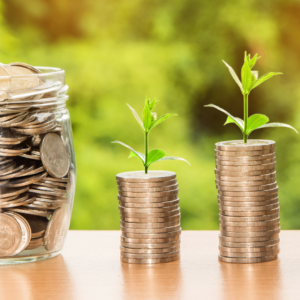I just got back from the grocery store, and wow! We all have watched prices going up for months now, and I wince every time I put some items in my cart, but today felt like a new high. A (very large) bag of carrots at Costco today cost me $9.99, while back in January I got the same bag for $5.99. That’s almost double the price. For carrots.

I realize that some of these price hikes are likely seasonal, and there are supply chain issues, and all sorts of challenges with the supply chain, but you can’t argue the fact that it costs an awful lot more to feed a family now than it did even 6 months ago.
Even f you have the luxury of having the income to adjust to this inflation, I guarantee you’re still feeling these price hikes.
So what’s a person to do? How do you feed a family, with the focus being healthy food, and not shell out an arm and a leg every time you go to the grocery store?
Here are my best recommendations.
Meal planning
When you go to the grocery store with a list and a plan, you will absolutely spend less money. You’ll also waste less food, which makes me feel better when I’ve spent what feels like a ton of money on that head of lettuce.
The other benefit of meal planning is that you can plan around sales at the grocery store. Sit down with your store’s weekly flyer, choose some of the things that are on sale, and build meal plans that way.
Finding a good meal plan strategy that works for you can take a bit of trial and error. If you need some help, I have a couple of resources on my blog here, and my YouTube channel here.

Focus on the more inexpensive food
While we’re seeing big price hikes across the board, there will always be food that’s cheaper than others.
- Vegetarian protein – lentils, chick peas, legumes, beans, etc. have always been significantly cheaper than animal proteins. They’re cheaper, easy to prepare, and very healthy!
- Root vegetables – things like carrots, onions, potatoes, turnips, cabbage, etc. tend to be much cheaper than most other vegetables. On the fruit side, bananas and apples tend to be much more affordable than fresh berries year round. Part of this is that things like root vegetables store very easily, and they can be grown locally and stored locally year round. Bananas have, for a long time, been a loss leader at grocery stores. That means that grocery stores do not make any money on bananas, which is a benefit for us as a consumer.
- Frozen fruits & vegetables – these are usually so much more inexpensive than fresh fruits & veggies, especially in the off season. But these are flash frozen when they’re picked, meaning they’re generally full of nutrients and very healthy! Even if you’re not on a budget, never be scared of using frozen fruits & vegetables.
- Canned vegetables – While I recommend frozen over canned (due to the fact that canned vegetables do have higher amounts of salt), canned vegetables can absolutely be a staple to a pantry on a budget. I use a ton of canned tomatoes year-round. If canned vegetables are what you have access to, then you should use them!
Grow your own food
Even if you don’t have a ton of space, there are so many ways you can grow your own food. Having a balcony garden in pots means you can grow things like fresh herbs, leafy greens, tomatoes, etc. If you have space and can grow onions and carrots and cabbage, those will store really well for a long time.
I don’t grow my own strawberries, but I pick a whole bunch of them during strawberry season, and then I process some of them into jam and some of them I just freeze. So I never pay top price for frozen strawberries throughout the year, because I have enough to get us through until the following strawberry season.
(I also don’t buy a lot of fresh berries out of season, but that’s a story for another day).

Cook at home
Eating out, while exciting and delicious, can be very expensive. The more you cook at home, the less you’ll pay for food. Save eating out for a real treat.
And even when it is time to eat out, you can plan for that on a budget. Some types of food will go a lot further than other types of food. We have an incredible shawarma place near us that we order a family platter from and eat delicious meals for at least 3 days. And while that cost has gone up, that costs us a fraction of what we would pay for eating at a restaurant for 3 days.
Don’t forget! Making coffee or tea at home will save you quite a bit of money if you’re not grabbing a coffee on the go every day.
Buy in bulk
Generally, buying in bulk will save you money. Stores like Costco exist for a reason! But, Costco (or other bulk food retailers) don’t always guarantee they have the lowest price. Shop around, compare prices, and go with the cheapest option.
Drink water
If you can replace juice, soda, milk, and alcohol with water, that can save you quite a bit of money.
(Before you get annoyed with me at recommending cutting out milk, I have lots to say about that which I will save for another day. But the short note is you don’t need milk in your diet, especially as an adult).
That’s a few of my ideas about how to save money at the grocery store now with food prices climbing. What am I missing? What tips and tricks work for you when you’re budgeting for your food? I’d love to know!
